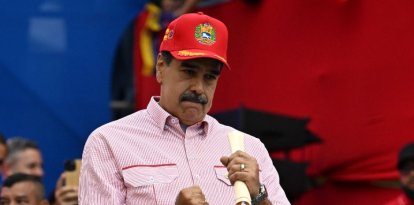Trudeau plummets in the polls
The upcoming election has become an uphill race for the Canadian prime minister, both in national polls and within his party. The Conservative Party appears headed for a comfortable victory.

Justin Trudeau, prime minister of Canada
The fourth term of Justin Trudeau will likely be his last. So say the main polls ahead of the next election, which must be held before the end of October 2025.
The party of the 52-year-old prime minister has a meager 17% of voting intention in the federal polls, as reflected in a recent Mainstreet Research poll. With those numbers, the Liberal Party ties with the also progressive New Democratic Party, but falls far behind the Conservative Party, which reaps 47% support.
Although the numbers vary, major polls show a similar gap between Trudeau's Liberals and the Conservatives, led by Pierre Poilievre, a member of the House of Commons. The CBC polling aggregator shows the former with 23% support against 41% for Poilievre.
In Canada, voters elect representatives to the House of Commons. The party that wins the most seats forms the government, and its leader becomes prime minister. With this in mind, it is worth noting that in terms of the composition of the House, the above Mainstreet Research figures translate into 245 seats for the Conservatives and 36 for the Liberals, who would lose 117 seats.
In addition, it gives the Conservative Party a 100% chance of obtaining a majority government (i.e., in addition to forming the executive by coming first in votes, it has a majority of the seats in the chamber). To the Liberal Party, with 0%.
"The Conservatives could win well over 200 seats and are virtually assured of winning a majority government if the election were held today," says the CBC aggregator. It further notes that the Conservatives' growth is "mostly at the expense of the Liberals."
Trudeau, ready to put up a fight
The Liberals' free fall began in June 2022, when they were ahead of the Conservatives by less than a point, according to the CBC aggregator. That was the last time they were above.
Polls since then show the government worsening its numbers month by month, while Poilievre's follow the opposite path. This trend in opinion polls was confirmed in September this year, when the Liberals lost two elections in districts that had traditionally been theirs.
Trudeau was not daunted. He announced a series of promises and twists, such as the acknowledgement of mistakes in his immigration policy. He also resisted internal attacks, such as the letter signed by 24 of his deputies asking him to resign.
The opinion that he should step aside goes beyond the party: 38% of those consulted in a survey commissioned by The Globe and Mail said that the best way to win in the next election is to look for a new party leader.
As bad as that figure is for the prime minister, just as bad or even worse is that 30% argued that nothing would improve his party's chances of winning. Only 3% said Trudeau should remain at the head of the party.


























